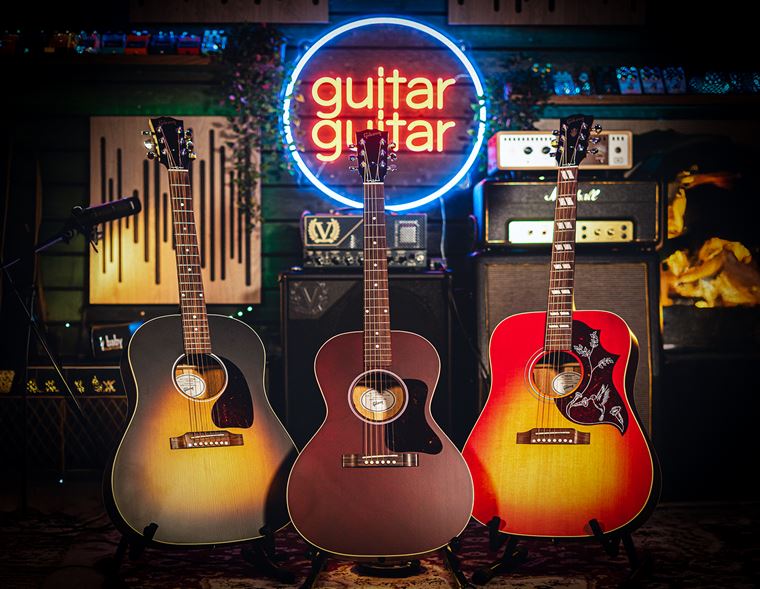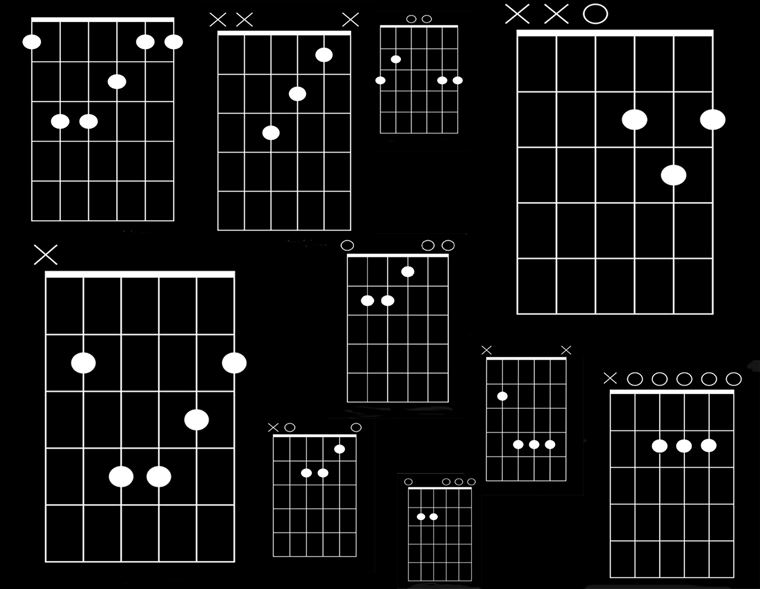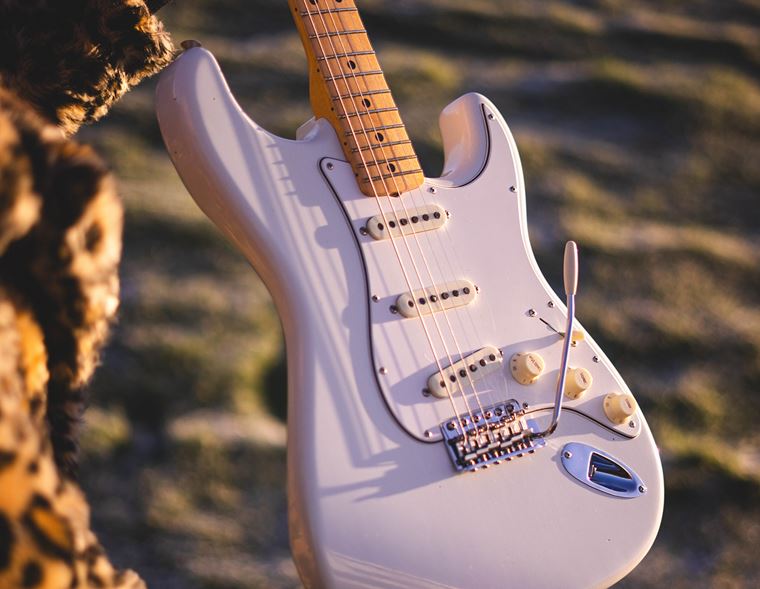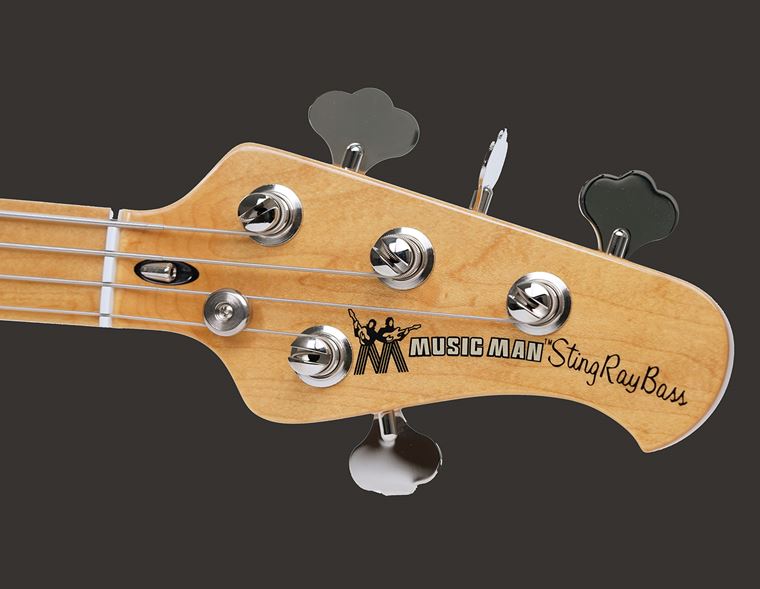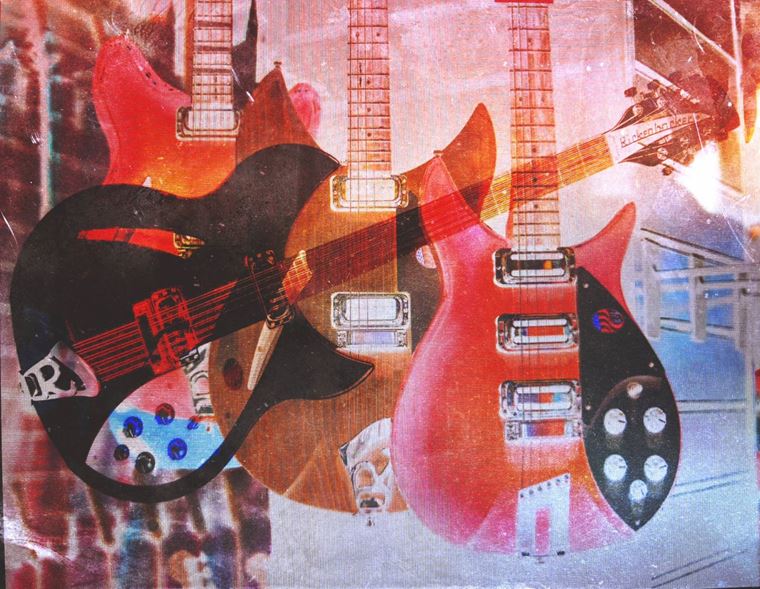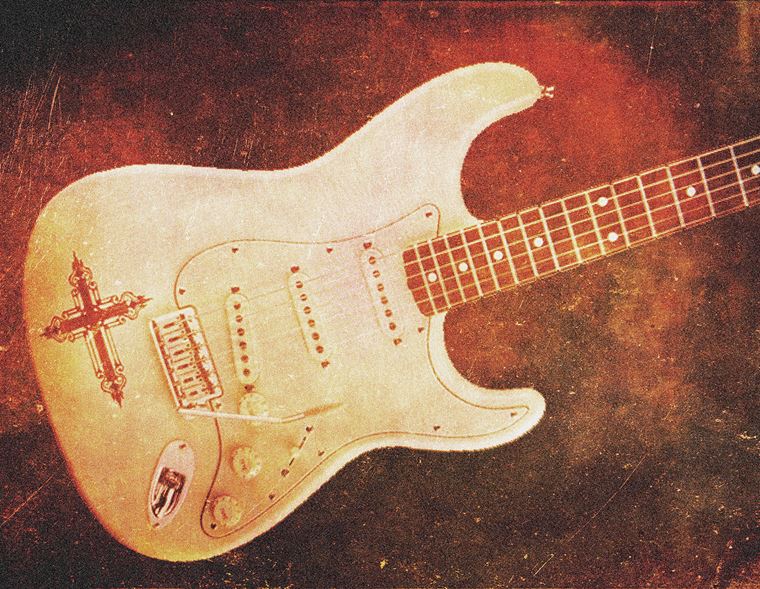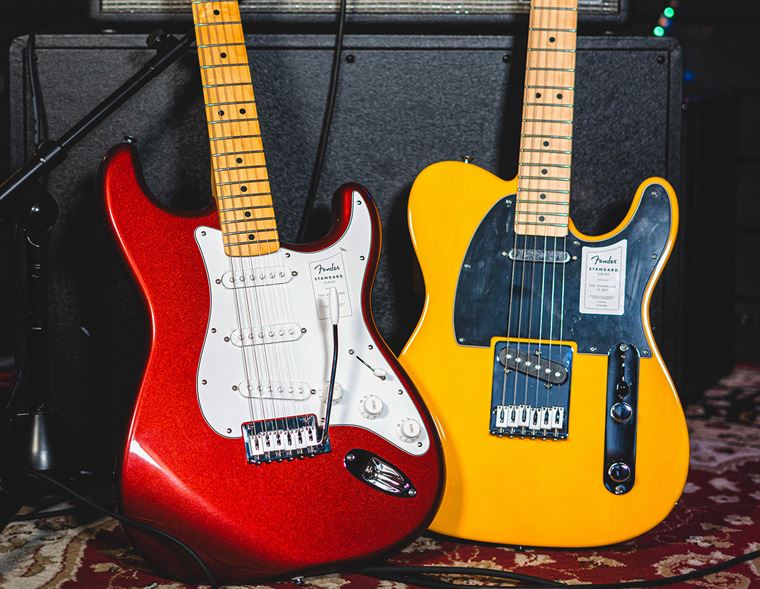How to Get Better at Guitar
Published on 25 April 2023
What can you do to get better at guitar? How can you improve on your playing? How do you level up and become more like the player you want to be?
Well, there are no magic beanstalks to climb up and no shortcuts to attaining greatness on the instrument: it’s all about dedication and persistence, really. That said, there are definitely ways in which you can work smart, and get to where you’re going quicker than if you just plonk around on the same three riffs every time you pick up your guitar.
Here are 10 tips for how to get better at guitar that you can try out in your own practice time, to incorporate as you wish. They are all pretty much tried-and-tested, common sense tips to make the most of your precious playing time. Stick a few of these into every session and you may amaze yourself at just how much you improve in a short space of time!

These tips are presented to you as individual ideas, in no particular order. Try them out, use what works for you and don’t worry about the stuff that doesn’t resonate. There are no rules here, only encouraging ideas!
10. Practise
The first tip here sounds simple but don’t look past it! We’re saying that you need to practise, and by that we mean mindfully working on the stuff that you know you need to improve on. It’s a very common thing to just pick up your guitar and go through the motions - whatever skill level you’re at - so identifying that behaviour and calling it out is a great start.
Playing guitar is always a worthwhile pursuit, but if you want to actively get better, you need to use your time constructively. Going over the same old half-learned bits and pieces will not suffice!
9. Search Out New Techniques
In this internet-ridden information age, it’s a safe bet that you’ll always be able to find answers to any given question online within 5 minutes of searching. If something somebody does on the guitar catches your ear when you hear it, go and find out what that player did! Did John 5 or Guthrie Govan do something crazy that you want to learn and add to your trick bag?
If you don’t know what they did, we bet they’ll be online talking about it somewhere, and if they’re not, somebody else will! Don’t let those moments pass, they are important: something that person did appealed to you. It reached out and made itself aware to you, so it’s in your own interests to follow that up until you’ve figured out and learned how to do that thing yourself. Once you’ve got the technique learned, it’s another string to your bow!
8. Record Yourself
One of the biggest ways to improve is to record yourself playing and listen back to it. When we are playing, we are ‘living in the moment’ with the music that’s coming out, so we rarely hear it with an objective ear. When we play alone, we often don’t take note of how many mistakes get made, and how often we bluff past parts that are difficult for us. We don’t take much notice of our timing, either, since there’s no band to fall in with and keep our timing on point.
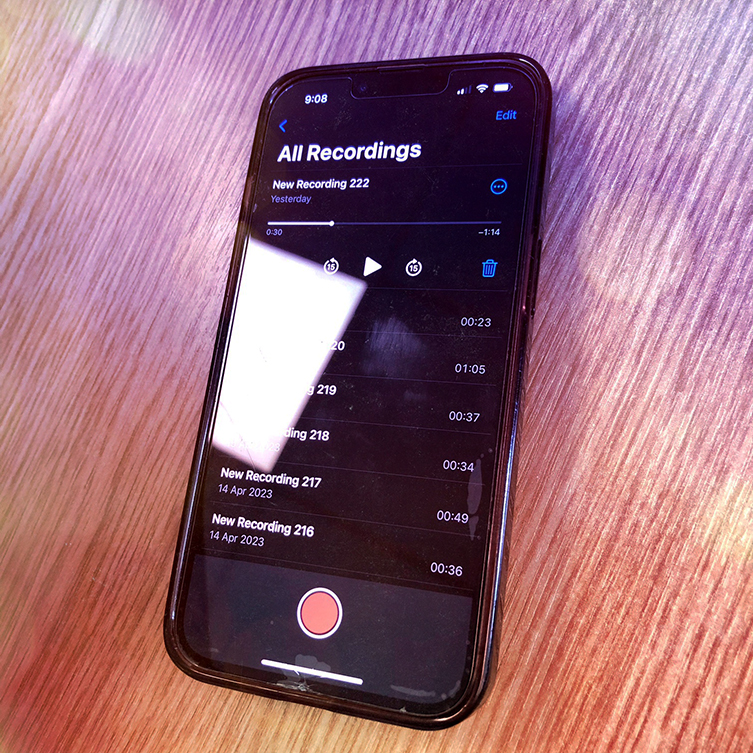
All of these things can set us on the path towards bad habits and poor playing. This is why it’s a great, humbling thing to record yourself playing, so you can listen back and actually hear how you sound. Just use your phone’s voice memo function if you haven’t got a handy recorder: we’re not recording for posterity! If you are working on a particular part, record your progress over and over, keep your recordings and see if you can actually hear your improved playing as you go along. You may amaze yourself!
It can be a difficult experience to hear your guitar playing - warts and all - thrust back at you, but it’s the quickest and most effective way to identify the areas that are sounding great, and the bits that need more work. Take a deep breath and hit that ‘record’ button!
7. Learn a Cover Song
Sometimes you want to play but are faced with a very uninspired mood. Everything you play sounds boring and generic, even though the will to play is most definitely there. When these moments arrive, take yourself out of them by picking a song to cover. The simple act of taking away the musical decision-making (you don’t have to think of what notes to play, you’re learning someone else’s decisions there) can allow other energies to come in and replace that weird-feeling ennui you were suffering before.
Cover songs have no pressure attached to them, if you’re just learning them for fun. They may also suggest new chord voicings, progressions and note choices that you won’t have arrived at via your own knowledge, so you can actually really level up by choosing some interesting songs to cover.
One thing we feel is important to add here is to learn the entire song. Guitarists are quite guilty of just learning the most recognisable parts and jamming them for a few minutes, neglecting all of the little additional linking elements that turn a collection of ideas into a well-crafted song. For example, how many metal fans can play the Master of Puppets riff? Most of you, right? Now, how many of you bothered to learn the entire song from start to finish (solo or no solo)? Ah yes, the hands are dropping now, aren’t they? If you know you do this, realise that you are far from alone! From now on, be one of those smart people who drop this poor habit in favour of getting each tune you learn 100% under your fingers. It’s worth it! You’ll learn so much more, and it’ll make you a more rounded musician.
6. Perfect a Specific Piece
This tip relates somewhat to the previous one, but it goes a little deeper. When learning a song, we advise a couple of things. First off, try to find an accurate transcription of the music (it’s amazing how many official tab books are incorrect!) by searching online for opinions of a particular transcription. Having the right notes in the right places is everything!
Next, we’d say practise your chosen piece until you can play it perfectly. We don’t think you should spend 100% of your guitar-playing life doing this, but whenever you do commit to learning a song - particularly something that’s fairly heavy on the technique - we strongly urge you to break it down into little parts and practise the hell out of it. There was a reason you gravitated toward the piece you’ve chosen to learn, so take the time and effort to really get inside the music. The closer you get to nailing it, the more accomplished you’ll feel, not to mention the better you’ll be as a player.
If it’s hard, just keep at it! Take breaks to mess around but come back around to the piece you want to learn again and again. You’ll find the journey is less arduous each time you come back, and before long you’ll have it learned!
5. Use a Metronome
Use a metronome. You keep hearing this advice and ignoring it, don’t you? You think it’s boring and annoying to play along to a dull little beep. Where’s the freedom? Where’s the joy?
We’ll say it again: use a metronome!
Please don’t be offended when we say that every single guitarist in the world could work a little on their timing. Everybody can benefit from playing along to a steady pulse, and if you don’t like generic metronomes (either from a purpose-built device or a phone app), then there are numerous other ways in which you can get some solid timing practice.
The simplest one would involve utilising any simple music making apps you have on your devices. Create a beat that you like on the app, save it and then just recall it, changing the track’s tempo to taste.
If you have recording software on your laptop, do the same thing and save a bunch of projects with different beats and styles. (While you’re at it, why not create full-on backing tracks to play over?)
Even jump onto YouTube and search ‘guitar backing track’ or ‘isolated drum track’, and then simply play along. The purpose of the exercise is to tune your sense of timing into something other than your own instinct. We often don’t notice ourselves speeding up or slowing down, and those things are problems when they are accidental. Also, you’ll never be able to play ‘behind the beat’ or ‘ahead of the beat’ unless you can also play ‘on the beat’. Don’t skip this one: your sense of timing - more than almost any other factor in your technique - will reveal you to be a pro-in-the-making or a rank amateur, so be forewarned!
4. Accuracy Over Speed
Speed is something that guitarists need to get over. We’re not saying anything negative about playing fast, since there are occasions when it’s entirely the right thing to do, but there’s still such an emphasis on playing as fast as possible, and it’s making a lot of bad guitarists out there! Nobody wants to hear a cack-handed, sloppy attempt at an Yngwie solo, so slow your ass down and get those notes sounded right at as slow a speed as you can stand.
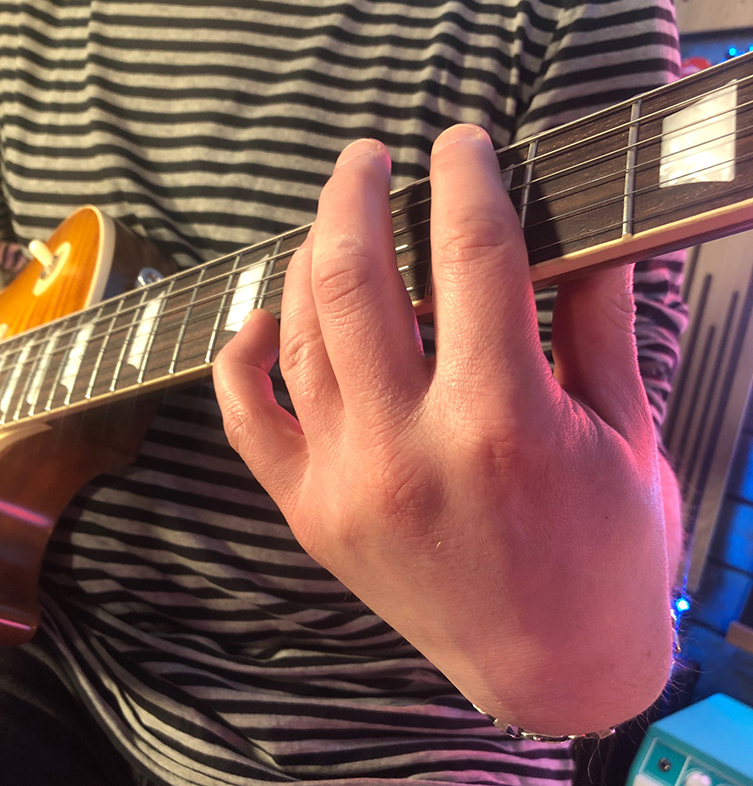
Listen: speed is a natural by-product of being accurate. Work on your accuracy and the speed will happen by itself, we promise. What do we mean by accuracy? Simply being mindful of playing each note cleanly, without slurs or buzzes, for the correct amount of time before moving on to the next note. Music is a linear business, and if we can describe that journey smoothly and with articulation, then the speed factor is a non-subject. Accuracy beats speed every time.
3. Play a Variety of Guitars
Now, this one may sound like a thinly veiled prompt to sell a few more guitars (as if you needed the excuse) but it’s not! We stand back, abashed and affronted at such an accusation, and instead explain our reasoning…
You may have found, by this point in your playing, that you prefer a certain style of guitar over another. Whether it’s as loose as ‘roughly Fender’ (bolt-ons with single coils and 25.5” scale lengths) to ‘roughly Gibson’ (set neck, pitched neck angle, 24.75” scale), or as specific as ‘I prefer vintage Teles with massive necks’ or ‘I only play shred guitars with skinny necks and loud pickups’, the point is, you may well have developed a preference.
Good for you: discernment is part of the culture, and it’s why we offer so many guitars! But seriously, as players, we often get so used to playing the specific guitars we prefer, that we fall into playing ruts that can be hard to get out of. You just get a bit sick of what you have, and it makes everything boring!
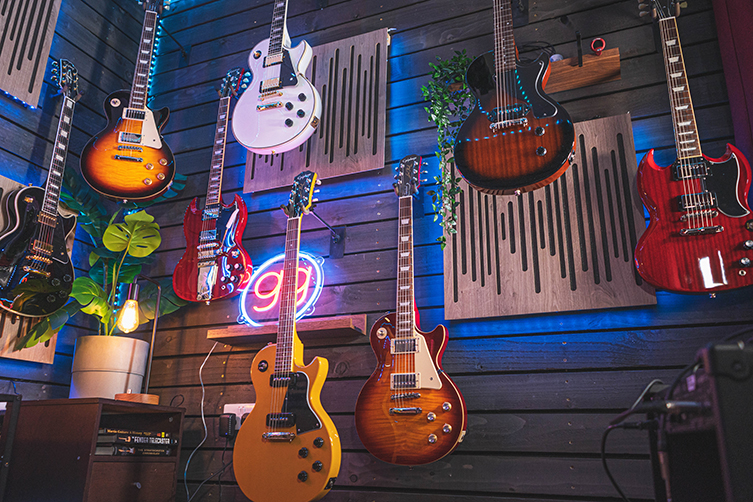
An immediate antidote to this is to pick up a totally different style of guitar. Playing even the same piece of music on two contrasting styles of guitar model can really change how you feel about what you’re playing. The sound changes, your hand position changes and your perception changes with it.
We’re not exactly saying that you should jump from a hollow body jazzer to an 8 string Strandberg, but we’re also not-not saying that!
2. Play a Variety of Styles
As a musician, it befits you to learn a wide number of styles. Whilst you’ll no doubt have the areas of music that you love the most, it’s always worth looking further afield to styles and genres that sit outside your comfort zone.
Why? Because you’ll then be putting your hands and ears into places they don’t often go, and that always results in interesting music. There are so many cool and interesting lessons you can take from different styles of music from all across the planet. Take that good stuff and bring it into whatever you’re doing! A country influence in your shredding seems like a pretty obvious move, once you get past the extra stylistic baggage that comes with genres. Some flamenco influence to your folk fingerstyle? Worth a shot!

1. Play Every Single Day
This last one is the simplest tip of all, but the magnitude of it can be pretty staggering. Just go and play your guitar at least once every day. Ignoring it all week and then playing for three hours at the weekend is a major mistake. Being ‘too busy’ doesn’t cut it either, we’re afraid. Put your phone down for five minutes and play the guitar instead.
For 5 minutes?
YES! Five minutes everyday is a path that leads eventually to greatness. Two hours on a Saturday afternoon if you’re not at the pub/football/in-laws is the pathway to frustrating mediocrity. Stop making excuses: nobody cares, and this is about YOU getting better. Answer to yourself and realise that only you can improve your playing. Take the opportunity every single day. We promise it’ll make a difference that you’ll notice.
Getting ‘Better’
So, those are our top ten tips for improving on the guitar. How many of them resonated with you? Did you recognise some of your own behaviour in a few of them? It’s perfectly normal to hit all of these stumbling blocks as you try to gain traction with playing. The biggest three words we can shine at you in 50ft neon letters would be: ‘CONSISTENCY’, ‘PERSEVERANCE’ and ‘FUN’. Keep these words in mind and you cannot fail.
Good luck!



